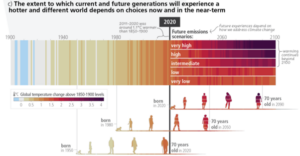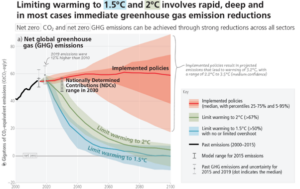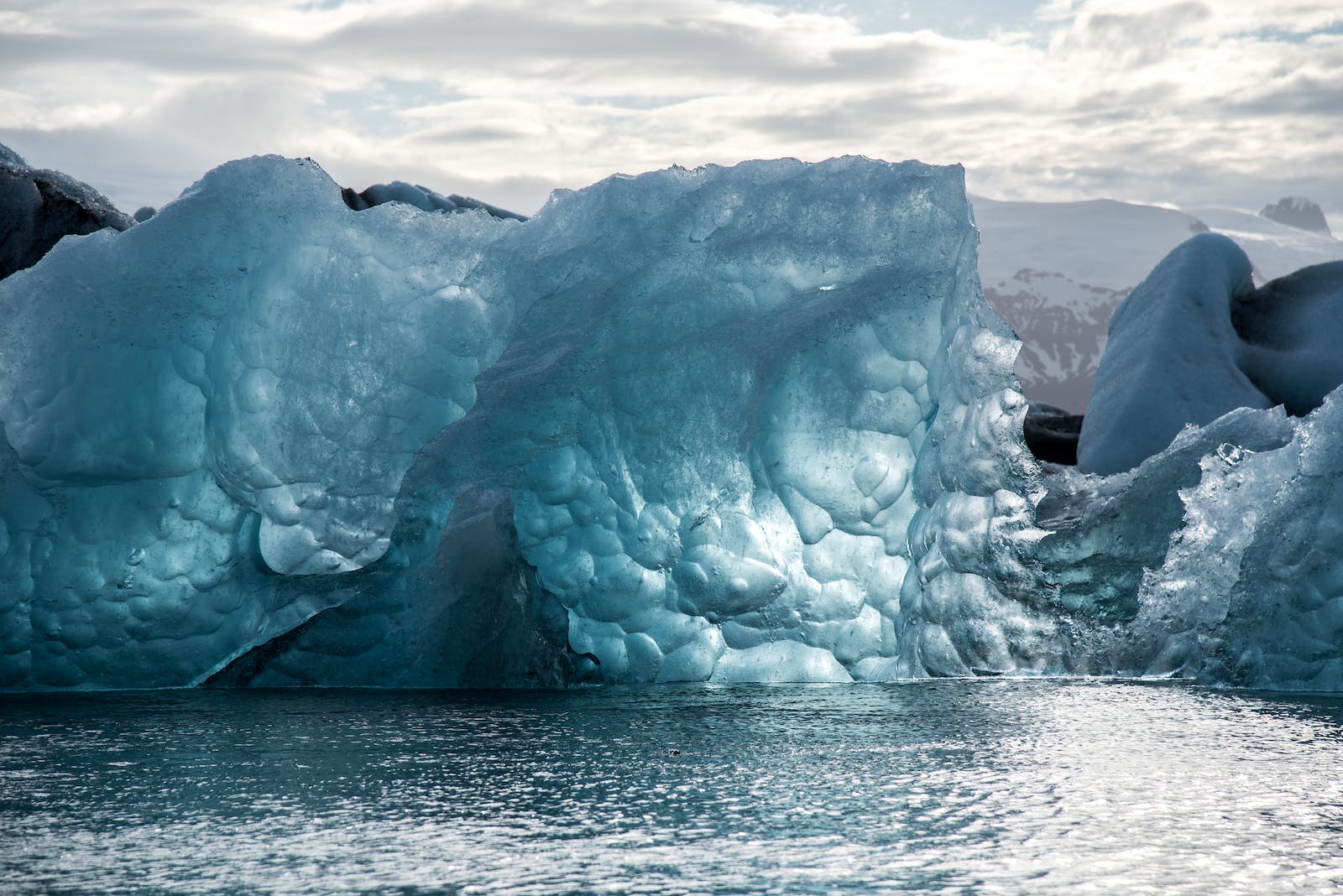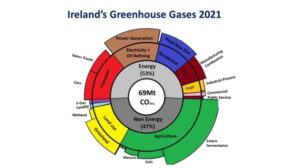“Our world needs climate action on all fronts — everything, everywhere, all at once” according to United Nations Secretary-General Antonio Guterres.
The final synthesis report under the IPCC 6th assessment report has been published and can be found at https://www.ipcc.ch/report/ar6/syr/. This is the final piece of the 6th Assessment cycle. The IPCC’s next cycle, AR7, will likely conclude around 2030 — and by then, we will already have made the decisions that will determine if we limit warming to 1.5°C, or if we surpass it — and by how much.
United Nations Secretary-General Antonio Guterres continued by warning that “Humanity is on thin ice – and that ice is melting fast” and “the world is running out of options to defuse the “ticking climate time bomb”.
One of the most striking images from the synthesis report shows that the world our parents inhabited is gone forever, and the world our children will experience will be much worse than what we now enjoy, but how much worse is in our control and will be determined by our actions in the next seven years.

1.5 degrees of warming is already locked in
Peter Thorne, Professor in Physical Geography (Climate Change) at Maynooth University and contributing lead author of the report stated, “Almost irrespective of emission choices in the near term we will reach 1.5 in the first half of the 2030s. The question is whether we reach 1.5 and come back down, or blast through 1.5 and 2 degrees and keep on going. The future really is in our hands, it really is our choices, the rest of this decade is key, whether we apply the brakes and stop the warming.”
We need to globally hit the fast-forward button on our net zero deadlines

Current global policies will lead to an increase of ~3 degrees by 2100.
Implications for Ireland
Rich countries need to do more, and Ireland should therefore act faster.
We need deep, rapid, and sustained reductions in emissions. From this we can understand that:
- Small reductions are insufficient.
- Plans with long lead times are insufficient.
- Plans which can only partially decarbonise are insufficient.
We need to scale our actions to the magnitude of the problem.
For Ireland, this means being honest about our agri-foods sector. You can see from our 2021 emissions that land use and agriculture make up nearly half of our emissions. We need to immediately prepare those working in high-emission activities associated with agriculture and grasslands for an equitable transition. Denying that there is a problem is not a good start.
We need to be honest with the public about what a low-carbon lifestyle entails, with its associated reductions in using fossil fuels, consumption of meat and dairy, and driving and flying. We need to re-evaluate all our plans in the pipeline, canceling the high carbon plans and fast-tracking those that enable a low-carbon future
We are beyond the point where climate change can be somebody else’s problem.
We need to be enabled by governments, but action is needed at all levels from intergovernmental, governmental, communities, and individuals.
Peter Thorne said at the launch of the AR6 synthesis report “If we had had the foresight to act in 1990 in a meaningful way, we would have a vast vista of options available to us to avoid 1.5 and keep well below 2 degrees. The reality is that we (at all levels, governments communities, and individuals) have made climate change somebody else’s problem. We have to stop that. We have to act now. It is action across all scales. Do not say it is your government’s problem, your communities problem, it is your problem as part of that community, as part of that country, to make the difference at this point for the resilient future we need, that avoids as much additional climate change as humanly possible.”









